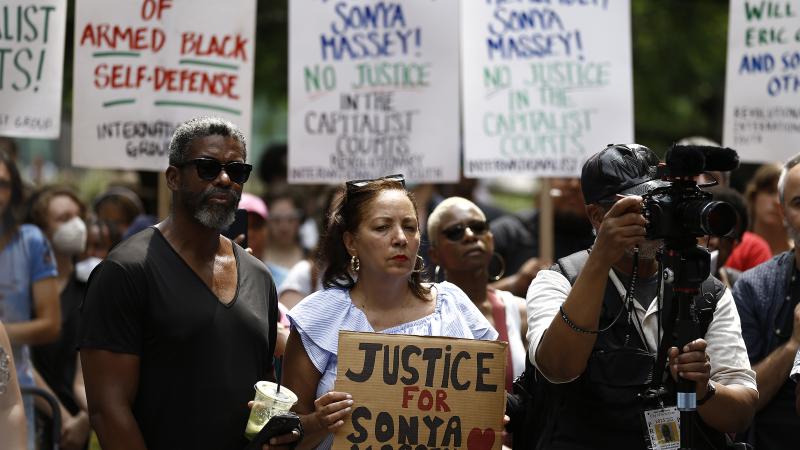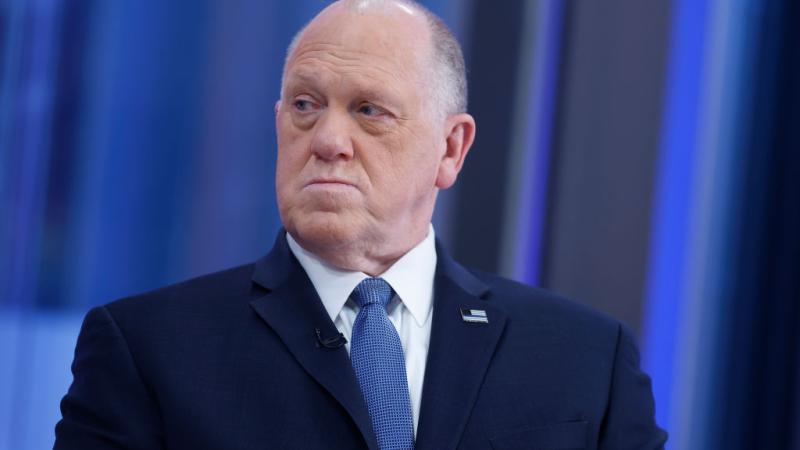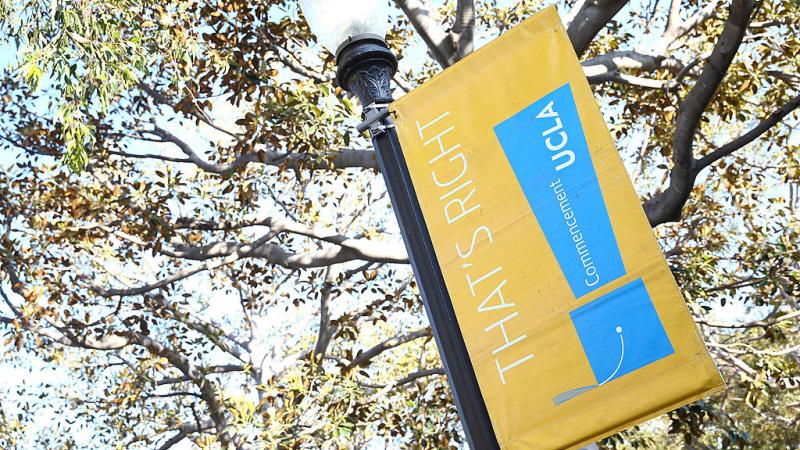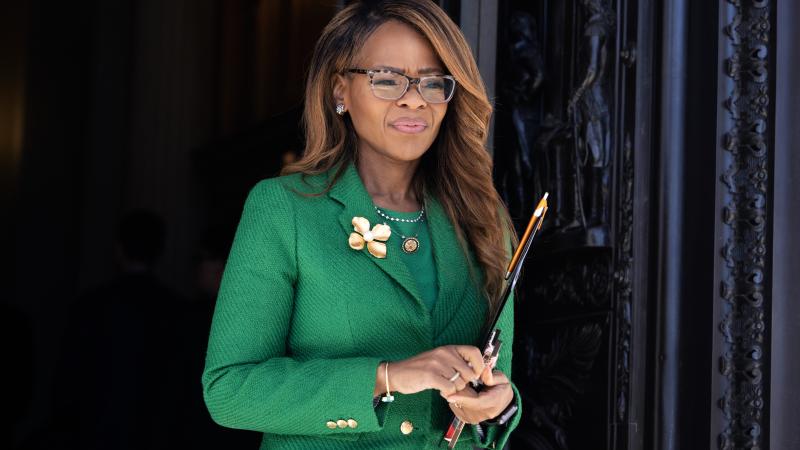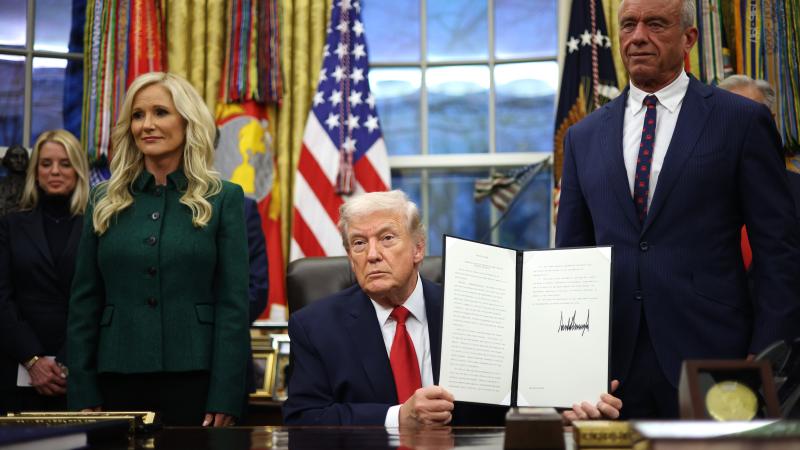Judge spurs grassroots backlash by upholding ban on 'demeaning' XX symbol at girls' games
Like Supreme Court ruling on eminent domain that triggered political reform, ruling against silent protest at girls' games energizes gender-critical movement. Dissenter thinks they bet wrong on First Amendment cases, though.
The routine practice of governments taking private property for whatever purpose they see fit, even economic redevelopment, became a losing political issue after the Supreme Court upheld a sweeping view of eminent domain against a divorced mom with a "Little Pink House," as the dramatized version of Susette Kelo's legal battle called her doomed abode.
By letting a New Hampshire school district ban parents from wearing "XX" wristbands at their daughters' soccer games to silently protest male participation, calling the female symbol a "demeaning and harassing assertion" in that context, U.S. District Judge Steven McAuliffe may have doomed the political viability of gender identity-based athletics policies.
The President George W. Bush nominee's denial of a preliminary injunction against Bow School District's XX ban this week, after mostly rejecting an emergency temporary restraining order last fall, sparked outrage among high-profile activists for sex-based distinctions including swimmer Riley Gaines, but also criticism from within the movement about the legal strategy.
The ruling counters newfound White House support for girls challenging so-called transgender participation policies, with the Trump administration suing Maine for letting males in girls' sports.
It's also at odds with the U.K. Supreme Court's unanimous ruling that its Equality Act defines "woman" and "sex" by biology, not gender identity. The National Health Service said it's considering the ruling as it updates its guidance on "same-sex wards," which currently says transgender people "should be accommodated according to their presentation."
"Mass produce these pink XX wristbands under your own name/brand" for "girl dads" to sport, an X user responded to Gaines, who rose to prominence by protesting University of Pennsylvania male swimmer Lia Thomas, who identifies as a woman, taking her trophy.
"Let’s all sport our XX gear and stand with those working to protect women’s sports," Paula Scanlan, another Penn swimmer who protested Thomas's participation on the women's team wrote on X.
XX-XY Athletics founder Jennifer Sey, a former Olympic gymnast and Levi's brand president, said her gender-critical sports apparel company made a hat "in honor of the New Hampshire dads standing up for their daughters" and changed its logo to hot pink to match the wristbands. Judge McAuliffe "didn't say squat about hats," the company posted on X.
Other social media users suggested more creative silent protests.
'We contest every word of the transgender gospel'
"Our side loses a lot of cases we should win" because the movement uses First Amendment lawyers, who "love defending harmful speech" and won't challenge the other side's argument that "sex-realist language hurts kids," New York Assistant Attorney General for Consumer Fraud Glenna Goldis wrote in her personal capacity in an X thread.
"We should be arguing – Gender is meaningless," the "lefty lesbian lawyer" Goldis said. "Every gender-respecting precedent is wrong" and legal discovery "will show the other side is lying about harms. We contest every word of the transgender gospel."
Coming out under her own name last fall to crusade against the medicalization of youth gender confusion, which she says should be illegal, Goldis noted she was an outlier by predicting that not only was the New Hampshire case not a "slam dunk" but the parents would lose at the 1st U.S. Circuit Court of Appeals if it got there.
The 1st Circuit ruled last summer that Middleborough Public School in Massachusetts could ban student Liam Morrison from wearing shirts that read "only two genders" and even "censored genders" to protest the school's LGBTQ activism.
It narrowly construed the 1969 Tinker precedent on student speech to exclude expression that "assertedly demeans characteristics of personal identity," even if done "passively, silently, and without mentioning any specific students."
McAuliffe called that ruling "both relevant and instructive" to "adult invitees to high school soccer matches" because the 1st Circuit "fully describes the kind of demeaning, bullying message that can be constitutionally regulated in a public school setting."
Morrison appealed to the Supreme Court, supported by Republican attorneys general, conservative and pro-life groups and a Colorado student who was banned from wearing a backpack with the Gadsden flag – a supposed "slave trade" symbol – until his governor intervened. SCOTUS will decide on Thursday whether to take his case.
Asked whether the First Amendment strategy is failing, the parents' lawyers at the Institute for Free Speech told Just the News the 1st Circuit decision is not "free-speech friendly" but noted it keeps getting distributed for conference at SCOTUS.
McAuliffe's opinion, however, "goes even further, applying LM to adults in a limited public forum, not just students in the classroom," senior attorney Del Kolde wrote in an email. "We think that makes this decision an outlier, not just nationally, but also in the First Circuit."
He didn't say whether IFS would appeal, just that it has 30 days to do so. IFS immediately notified the court it didn't plan to "supplement the evidentiary record or submit supplemental briefing" ahead of McAuliffe's ruling on their permanent injunction request.
'An assertion of inauthenticity, falsity and nonexistence'
Both George W. Bush nominees with "senior status," McAuliffe's ruling exhibits the confusion of 2nd Circuit Judge Richard Wesley in a recent oral argument over Vermont banning a Christian school from athletics for its refusal to play a girls' team with a male.
Wesley had trouble keeping sex and gender identity straight – the core of the case – and disputed how a Christian school could object to playing a gender-confused male on the basis of sex without also discriminating based on gender identity.
McAuliffe believes that gender identity is "immutable," ignoring the phenomenon of gender fluidity and rapid-onset gender dysphoria most common in adolescent girls, and says that demeaning it "strikes a person at the core of his being," quoting a 7th Circuit ruling about a phenomenon based on sex – sexual orientation.
He repeatedly refers to challenged athletes as "transgender" instead of male and seems particularly concerned with the visibility that Gaines has given "XX" and the popularity of the activist with the plaintiffs, "particularly Andy Foote and Kyle Fellers, [who] often reference Riley Gaines in their social media posts and on their signs/posters."
Notably, the judge didn't mention Sey's XX-XY brand, which was founded several months before the lawsuit.
McAuliffe paraphrased testimony by Superintendent Marcy Kelley that the XX symbol "conveys a well-understood anti-trans message" in contrast to the "Pride" symbol, which she might allow at games because it "conveys a message of inclusion and does not target or harass any specific student." (Morrison, the student, testified otherwise in his 1st Circuit case.)
Because the parties "seem to agree that the Bow soccer field and its immediate environs qualify as a limited public forum under the control of the School District," and high school athletics "ideally" serve as an extension of the classroom, albeit with spectators, Supreme Court precedent gives the school wide leeway to regulate student activities, McAuliffe wrote.
He underlined a sentence from the 1st Circuit Morrison ruling that “[it] is enough for the school to present facts which might reasonably lead school officials to forecast substantial disruption," rather than prove "serious consequences" will follow if a student isn't censored.
Kelley and others who testified "reasonably interpreted the pink XX wristbands to be sending, in substance, the same message" on Morrison's shirts, "an assertion of inauthenticity, falsity and nonexistence with respect to some students’ core and immutable characteristics (i.e., their gender identities)," the judge asserted.
"And, it seems evident that had the symbols been worn by students in school or during school activities, they could be barred as reasonably interpreted in context to convey a harassing, demeaning message likely to have a serious negative psychological impact on students who identify as transgender," McAuliffe wrote.
He waved off the plaintiffs' explanation of their intended meaning for the wristbands, rewriting it as their objection to "transgender girls" while acknowledging their "reasonable concerns related to unfair competition, risk of injury, and lost opportunities for their daughters to succeed."
The record shows the XX symbol is "associated with other meanings that are far more offensive than those ascribed by plaintiffs" and "school authorities are not obligated to ignore the broader and perhaps more prevalent meanings generally ascribed to the symbol" when they assess "its demeaning and harassing character" in the athletic context, he said.
The Facts Inside Our Reporter's Notebook
Links
- "Little Pink House," as the dramatized version of Susette Kelo's legal battle
- ban parents from wearing "XX" wristbands
- denial of a preliminary injunction
- mostly rejecting an emergency temporary restraining order
- Riley Gaines
- Trump administration suing Maine
- U.K. Supreme Court's unanimous ruling that its Equality Act
- National Health Service said it's considering the ruling
- "Mass produce these pink XX wristbands
- Paula Scanlan
- trashed by Rep. Jerry Nadler, D-N.Y.
- gender-critical sports apparel company made a hat
- Judge McAuliffe "didn't say squat about hats,"
- Glenna Goldis wrote in her personal capacity
- "lefty lesbian lawyer"
- Coming out under her own name
- crusade against the medicalization
- youth gender confusion
- the parents would lose at the 1st U.S. Circuit Court of Appeals
- Middleborough Public School in Massachusetts could ban
- "only two genders" and even "censored genders"
- Morrison appealed to the Supreme Court
- Gadsden flag â a supposed "slave trade" symbol â until his governor intervened
- whether to take his case Thursday
- IFS immediately notified the court
- Vermont banning a Christian school from athletics
- 7th Circuit ruling
- phenomenon based on sex â sexual orientation

